All Available Episode
All Season 7 Episode
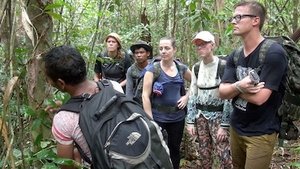
1. Poachers Turned Eco-Guides in Cambodia
After the fall of the Pol Pot regime, Chi Phat Village became known as a center of illegal poaching and logging as its residents grew desperate among the declining economy. One day, an NGO offered them an unexpected option: Poachers could give up their hunt and instead turn their knowledge of the trails to guiding tourists. In this episode, we travel alongside the men working to revitalize their village in a new industry that has allowed visitors and residents alike to gain a newfound appreciation for man's harmony with nature.
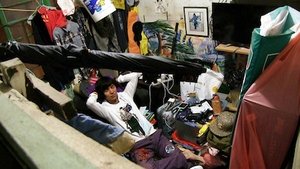
2. Hong Kong: Running Out of Space
In the 20 years since control of Hong Kong was returned from Britain to China, access to the vast Chinese market has helped the territory grow into Asia's leading financial hub. But over the last decade, redevelopment has driven up land prices and rent, leaving many struggling to make ends meet: including families crammed into tiny apartments, and senior citizens forced to live in so-called "cage homes" comprised of a single bunk. Yet while many battle to escape such poverty, the flow of people from mainland China seeking wealth and success in Hong Kong continues unabated. Explore the true nature of Hong Kong's unequal society through the living conditions of its poor.
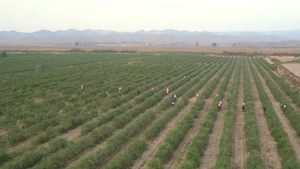
3. Counting on Red Fruit: China's One Belt One Road Initiative
China's Ningxia Hui Autonomous Region, located deep inland, is one of the nation's poorest. Despite being left behind the country's swift economic development, the region has been able to make use of its long tradition of goji berry farming. Under China's One Belt One Road initiative, a united trade infrastructure has been developed, propelling Ningxia to agricultural prominence through the goji berry trade. In this episode, we meet the farmers and businessmen who have staked their dreams on the tiny red fruits.
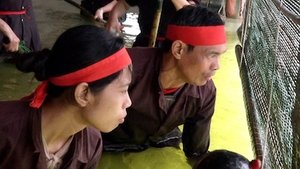
4. Vietnam: Reviving the Water Puppets
Water puppet theater is a folk art unique to Vietnam. Puppeteers use poles to move their wooden dolls over a water "stage". This centuries-old tradition nearly died out during the Vietnam War, but the village of Dao Thuc, Hanoi, kept the skills alive. Despite losing half their puppeteers during the war, the village started a campaign in the mid-1980's to revive the troupe and restart performances. Villagers rediscovered old stories and added a new one, drawing on their war-time experiences. We follow their efforts to protect this important cultural heritage.
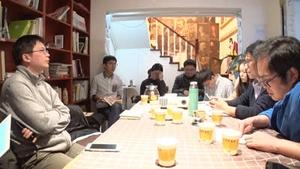
5. The Next China: Young Perspectives on China's Role in the World
Continuing on from his first term, Chinese President Xi Jinping began his second term with popularity rivaling that of Mao Zedong and Deng Xiaoping, and stated that he would make China into a greater global leader. Despite China's strict monitoring of political gatherings and debate, the growth and change of the country has inspired groups of young people to exchange heated views on their country's politics and morality. To the new generation, what is the ideal form of global leadership? In this episode, we speak with the young people of China to hear their opinions on the global future of their nation.

6. A New Page for Books in South Korea
Across Seoul, the capital of South Korea, independent bookstores are on the up. 50 such establishments have opened in the last year alone, with many in the bohemian Hongdae neighborhood. Each offers a unique selection of literature with a personal touch, with some even giving customers the chance to enjoy a beer or a coffee as they peruse the stock. Drawn to this world, more and more young people are choosing to self-publish their own writings, and even to open stores themselves. With the country's publishing industry undergoing rapid change, we meet some of the young people turning a new page for books in South Korea.
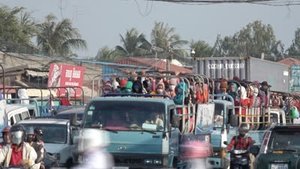
7. Cambodian Migrant Workers: Searching for Hope amidst Uncertainty
Each morning, Cambodian day laborers in Phnom Penh line up to seek work for the day, hoping that they may find enough for them to eke out a living. But in recent years, the laborers have been pursuing a new option: Traveling abroad to work in countries such as Thailand, Japan and South Korea. Several years of work in any of these countries could net them enough to live comfortably in Cambodia. With help from new businesses such as language schools and mediation companies, these pioneers set off on their own journeys to unfamiliar lands, all in hopes of bringing home better lives to their families.

8. Preserving the Hanji Tradition of South Korea
Traditional Korean paper, or hanji, was first made around 2,000 years ago. Made from paper mulberry bark, research suggests it is durable enough to last for over 8,000 years. It is especially coveted for its properties by those restoring cultural treasures. However, aging masters and a lack of successors has put the tradition's future into question. This time on Asia Insight, we meet 4th-generation hanji maker Jang Sung-woo, who resolutely adheres to traditional techniques, and is determined to pass on the wealth of his family's tradition to a new young apprentice -- and the next generation of papermakers.
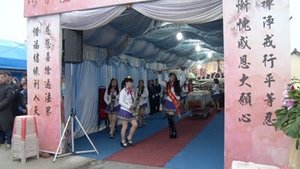
9. A Dying Art: Taiwanese Ceremonial Performance Troupes
One of the most vivid and unique forms of performance to be found in Taiwan is at risk of vanishing altogether. Taiwan's traditionally colorful processions, coupled with energetic song and dance performances, are designed to celebrate the important milestones of life. The acts come equipped with massive stage trucks and elaborate floats, but as young people opt for more subdued, modern weddings and funerals, performers and business owners are having trouble continuing the spectacle. In this episode, we follow along with the last remnants of this beautiful but endangered art.
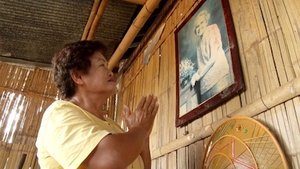
10. Harvesting Hope in the Golden Triangle - Thailand
The Golden Triangle, overlapping the borders of Thailand, Myanmar and Laos, is a major production center for opium poppies. In one area, however, the illicit trade has fallen sharply thanks to a project started by the Princess Mother Srinagarindra. Her foundation's work in Doi Tung, northern Thailand, has focused on supporting ethnic minorities through forest regeneration and promoting alternative crops such as coffee and nuts. This program looks at how a three-decade royal project eliminated poppy growing – and transformed lives.
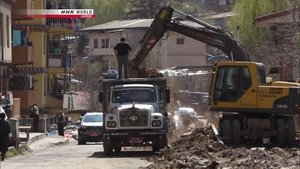
11. Bhutan's Hurdle to Happiness
An in-depth portrait of Asia today, covering its dynamism as a center of growth as well as its traditions tossed around by the advance of globalization. Today: Bhutan's Hurdle to Happiness.
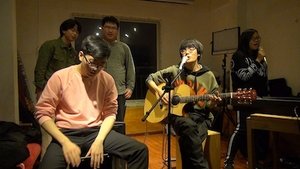
12. Beijing's 706 Youth Space
Although the youth of China are not permitted to discuss the politics of their country openly, the 706 Youth Space offers them a rare under-the-radar opportunity to consider their future. Many university students in Beijing hail from regional areas and can often find life in the city both expensive and isolating. The 706 Youth Space was created to provide an independent, non-faculty environment run by students from various universities. As well as providing inexpensive accommodation, events are held which give students a chance to exchange their views regarding both lifestyle choices and academic subjects.
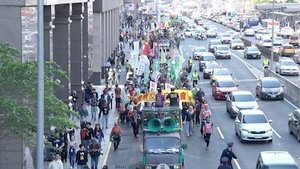
13. An End to Nuclear Power in Taiwan
In January 2017, Taiwan passed a measure stating that all of its nuclear power plants will be shut down by 2025. The change comes after Japan's Fukushima nuclear disaster and 30 years of anti-nuclear protests by residents. The key to phasing out nuclear power lies in renewable energy such as wind power and solar energy. Because of this, the government is conducting numerous tests. Business leaders, however, desire stable pricing and a secure power supply, so are pushing for continued operations. Explore the situation in Taiwan after the decision to phase out all nuclear power.

14. South Korea's Dog Meat Culture
For centuries, a unique culture has existed in South Korea around the breeding and slaughter of dogs for their meat. However, protests by animal activists during the Olympics severely impacted public opinion of dog meat, costing breeders their jobs and reducing sales to a fraction of previous levels. Animal-lovers seek compassion for the animals, while those involved in the industry counter that their businesses are not in violation of the country's admittedly vague legislation. In this episode, we explore this industry at the center of a complex social controversy.

15. Taiwan's Fairytale Wedding Industry
For brides everywhere, the right wedding dress is a crucial part of their big day, and Taiwanese firms are key players in this global industry. As well as the world's top-selling wedding dress maker, the island boasts the leading manufacturer of lace for bridal gowns. Main city Taipei is also home to several wedding photo studios that attract numerous couples from overseas, offering services ranging from dress hire and makeup to location and even underwater shoots! Follow the Taiwanese businesses working to give couples a fairytale start to married life.

16. Defector Video Creators: Young North Koreans with Dreams
In recent years, video sharing service YouTube has grown increasingly popular for the freedom it provides users in expressing their views. Through it, these "YouTubers" often communicate the latest trends on their channels. But a surprising group has emerged among video creators: North Korean defectors who, having fled to South Korea, now seek to educate other young people on the truths of their homeland, while dispelling the deep-seated prejudices many hold towards them. These so-called "Defector YouTubers" consider what it means to be born North Korean, as they seek their own futures in a land so near to and yet so far from where they were born.
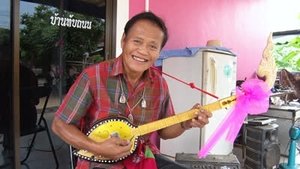
17. The Amazing Electric Phin - Thailand
The electric phin -- a modern adaption of a traditional stringed instrument -- is an essential part of any festivity in the villages of northeast Thailand. Inspired by the introduction of American music during the Vietnam War, electric phin bands offer a unique -- some say psychedelic -- take on folk culture. We look at the history of the instrument, and the pioneering musicians who hooked up a song-and-dance revolution.

18. Mongolians Set Sights on South Korea
In the 25 years since Mongolia introduced a market economy at the beginning of the 1990's, the country saw growth fueled by rich mineral wealth, but since 2012 a fall in mineral value and government restriction of foreign investment has led to a stalled economy. Few jobs offer enough to live on and a third of the population are living in poverty. Many have turned to jobs in South Korea. In 2017 there were 135,000 visa applications, a four-fold rise in just 3 years. Meet the people seeking a better life at home by working in South Korea.
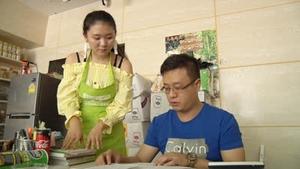
19. The Changing Chinese Society in Laos
In 2016, Asia Insight reported on a flourishing Chinese mall located in Laos, known to locals as the "Chinese castle". It had served as the center of business for many Chinese merchants, but in July of 2017, a sudden fire burned the complex to the ground. With their hard work turned to ash before their eyes, many returned home to China, and a small few relocated and rebuilt their businesses. However, with the start of the One Belt One Road policy, business competition from major firms has intensified, leaving little room for smaller shopkeepers to flourish. In this episode, we reconnect with the Chinese merchants struggling to get by in rapidly changing Laos.
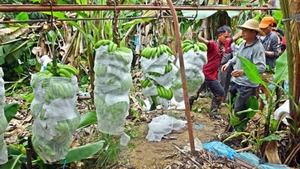
20. Laos' Banana Boom
Laos is a small landlocked nation in Southeast Asia with a population of 6.5 million. Although 70% of the population of Laos still lives in rural villages, growing rice and raising livestock, a new affluence is being brought about by an increase of Chinese-run banana plantations. These have sprung up in response to a boost in demand for bananas in neighboring China, providing Laos workers with a ready source of income. However, behind this success, a darker reality lurks. In this episode of Asia Insight, we take a look at Laos' Banana Boom.

21. China's Only Sign-Language Lawyer
There are said to be 300,000 certified lawyers currently working in China. However, almost none of them are qualified to represent hard-of-hearing clients, who are often unaware of their legal rights, and with no one to turn to when they fall victim to fraud or discrimination. Tang Shuai is the only known Chinese lawyer who is fluent in both forms of Chinese sign language, and he has made it his career's mission to assist the hard of hearing however possible. In this episode, we accompany the lawyer determined to create new dialogue within the Chinese legal system.
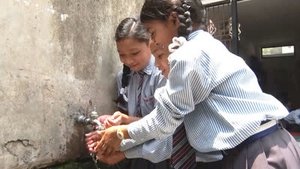
22. City Running Dry - Kathmandu, Nepal
Nepal is famed for its many mountains, which include part of the Himalayan Range. But despite an abundance of crystal-clear snowmelt, and over 6,000 rivers and streams nationwide, the capital, Kathmandu, and its surrounding valley are beset by severe water shortages. With over 100,000 rural migrants arriving in the city each year, water infrastructure is unable to keep up. As various businesses and schemes step in to fill this gap, we examine a city battling to secure the water it needs.

23. The Long Road to Recovery - China's Sichuan Earthquake
It is 10 years since the Great Sichuan Earthquake of 2008, which left 87,000 people dead or missing. The Beijing government has invested heavily in recovery efforts and according to official figures, Sichuan's GDP has tripled from pre-quake levels. However, survivors who lost loved ones in the disaster still struggle with their grief and not all of the recovery efforts have been successful. In this episode of Asia Insight, we revisit people we interviewed 10 years ago and see how far they have traveled on the road to recovery.

24. Kids' House Opens Doors - Laos
In Laos, despite the recent introduction of a 9-year compulsory education, many children are unable to attend school because their families are too impoverished to afford the necessities. Sounita Phimmasone, who works as a news anchor, experienced this hard way of life firsthand in her youth. It motivated her to found Kids' House, a weekend school located in the capital of Vientiane, providing classes in a variety of subjects such as art, dance and literature. In this episode, we visit Kids' House, where Sounita is bringing a future to the disadvantaged children of Laos.

25. New Steps Toward a Unified Korea
An inter-Korean summit took place on April 27, 2018. It was a historic meeting – the first in 11 years – where Moon Jae-in, President of South Korea and Kim Jong-un, Chairman of the Workers' Party of Korea found common ground. A number of pledges, including denuclearization, brought the 2 countries closer. Outside of politics, many private citizens have been working tirelessly to lay the foundations for a future where more exchange between North and South is possible. In this episode of Asia Insight, we follow the many efforts of both South Koreans and North Koreans alike taking new steps toward a unified Korea.
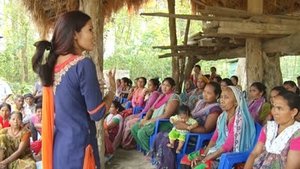
26. Eradicating Witch Hunts in Nepal
Many people in Nepal turn to local shamans for everything from the timing of weddings and moves to treating illnesses. Some shamans single out local women as witches, claiming that they caused illnesses or tragedies. The resulting witch hunts sometimes end in physical abuse, and there are around 30 reported cases a year. The falsely accused women may be hit, kicked and forced to eat excrement. We speak with victims of these witch hunts, as well as to some NGOs that provide victims with support and are working to eradicate this terrible practice.

27. Banned Books Disappear from Hong Kong
Just a few years ago, Hong Kong was well-known as the location of many bookstores specializing in so-called "banned books" that were forbidden for sale in mainland China. However recently, they have nearly disappeared from the market, with many of the bookstores that carried them closing shop. This steady movement is strongly linked to the change in political leadership in mainland China, which has placed greater pressure on merchants to comply with the political view of the mainland. In this episode, we follow the traces of Hong Kong's political freedom amidst a rapidly changing era.
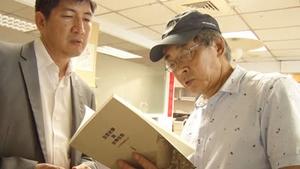
28. Searching for Freedom of Speech in Taiwan
Taiwan began its democratization in the 1990's, paving the way for freedom of expression greater than in any other Chinese-speaking region. Now, Taiwan has grown into a haven for creators who seek to spread views disapproved of by the mainland Chinese government. Lam Wing-kee is one among them, a former bookstore owner who suffered months of imprisonment in China for selling politically sensitive books. In this episode, we hear from the free thinkers who have left their homelands so that they may begin new lives free from creative persecution.
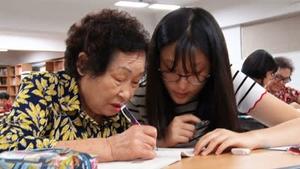
29. Dreaming of a Diploma - South Korea
Ilsung Women's Middle and High School is not an ordinary school. The average age of the students is 61. Many of these women missed out on the chance of an education during childhood because of poverty. Learning to read and write so late in life presents many challenges, but the students make up for that with hard work and a hunger to learn. In this program, we join them as they pursue their dreams of higher education.
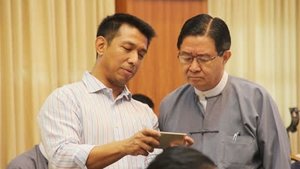
30. Fighting for Peace - Myanmar
Myanmar's government, led by Aung San Suu Kyi, is trying to end long-standing conflicts with ethnic armed groups. Talks are based on the Nationwide Ceasefire Agreement reached under the prior government. We speak to 2 of the men involved in drafting the historic agreement, Aung Min, a former military man and Min Zaw Oo, a former student demonstrator and rebel fighter who is now an expert in peace studies. Together, they bear witness to the recent history of peacemaking in Myanmar.

31. Changing Status of Bachelorettes in China
Traditionally, single Chinese women over the age of 27 were made fun of and regarded as "being left on the shelf". But now, with healthy incomes, single women are financially independent and have started to find a voice of their own. In spite of pressure from their parents, they don't have to marry and rely on their husbands. On this episode of Asia Insight, we follow the lifestyles of 3 young women who are enjoying their single lives in the city of Beijing.
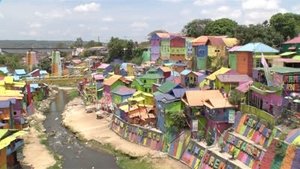
32. A Sign of Hope: Indonesia's Rainbow Village
In 2016 a new tourist hotspot was born in Malang, Indonesia: Rainbow Village. Once a poor slum, residents began painting their homes vibrant colors, creating trick art and handmade props. Today, both Indonesian and foreign tourists flock to the neighborhood to take selfies and upload photos to social media, creating new jobs for residents and increasing quality of life in the village. The project's success has prompted other villages across Indonesia to use paint to boost their quality of life.

33. Hotline of Hope in Tianjin, China
One Tianjin-based call center receives contact from over 10,000 people a year, spanning various ages and social groups. Known as the Hope Line, its counselors provide free advice to those who struggle with issues such as clinical depression or personal loss. Recently increasing are callers in their 20's, who have grown up financially stable but burdened by the many pressures of modern society. In this episode, we reach out to a call center that serves as a ray of light to the residents of northern China.

34. The Philippines: The People's Mayor
In the Philippines, regional economic disparity drives people to the cities, where many live in slums. Mayor Johnielle Keith Pasion Nieto is taking a hands-on approach to improving people's lives in his municipality near Manila. His programs include loans to promote homeownership, job creation schemes and the foundation of a free university. And whenever residents have a problem, his office door is always open. We follow the mayor's groundbreaking attempts to make a difference.
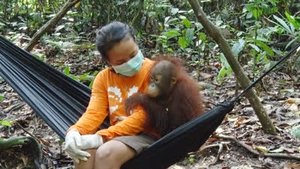
35. Saving Indonesia's Orangutans
Palm oil plantations in Indonesia are ravaging local forests and destroying the habitats of orangutans, driving them towards extinction. The Centre for Orangutan Protection, or COP, is an NGO on the island of Borneo that rescues and cares for these animals. At their forest rehabilitation center, staff help young, orphaned orangutans by acting as their family and teaching them the skills they'll need to return to the wild. The COP also monitors the surviving habitats of wild orangutans and reports companies carrying out illegal development, hoping to put a halt to further plantations.

36. China's Internet Plus and Laborers
China's Internet Plus Initiative has improved convenience and availability of technology nationwide, supposedly boosting quality of life through new industries such as bike sharing and internet food delivery. However, in the shadow of this growth, serious problems have become visible. Abandoned bikes litter cities, and food delivery workers are expected to rush food out at a dangerous pace. In this episode, we look at the difficulties of the Chinese workforce during the Internet Plus era.

37. Trouble on the New Silk Road - Myanmar
Rakhine, one of the poorest states in Myanmar, is receiving huge investment as part of China's Belt and Road Initiative. A pipeline to China is already in place. A special economic zone, including new ports and an industrial park, is also planned. However, land acquisitions for these new links between Myanmar and China are sparking opposition. Reporting from a region that's out of bounds to most news organizations, we look at the massive impact of China's growing economic power on the lives of Rakhine people.

38. Mongolian Hip Hop
Mongolia is a country strongly associated with the traditional nomadic farming lifestyles held by many of its citizens. But recently, a new and modern cultural movement has gained considerable popularity: Mongolian hip hop. Influenced by Western artists but adding their own upbeat and positive perspectives, the country's performers mix uniquely Mongolian melodies and instruments with fresh beats to send an inspirational message to other young people all over the nation.
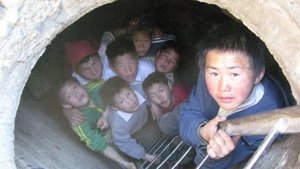
39. A Circus of Street Kids: Mongolia
In Darkhan, northern Mongolia, is a circus group made up of street kids. Of the 30 performers aged between 8 and 25, nearly half once lived on the streets. The group's leader, Tumur, once performed in circuses around Europe with his wife Battsetseg. After returning to Mongolia in 2005, they saw how many kids lived on the streets, and resolved to help them, feeding them and teaching them circus skills as a form of physical training. Starting with simple juggling and backflips, before long the kids were learning more difficult skills. Since 2011, the troupe has been operating as a professional circus group. Circus skills have given these former street kids hope. We look at the challenges they faced, and the bonds they share with Tumur and his wife.
